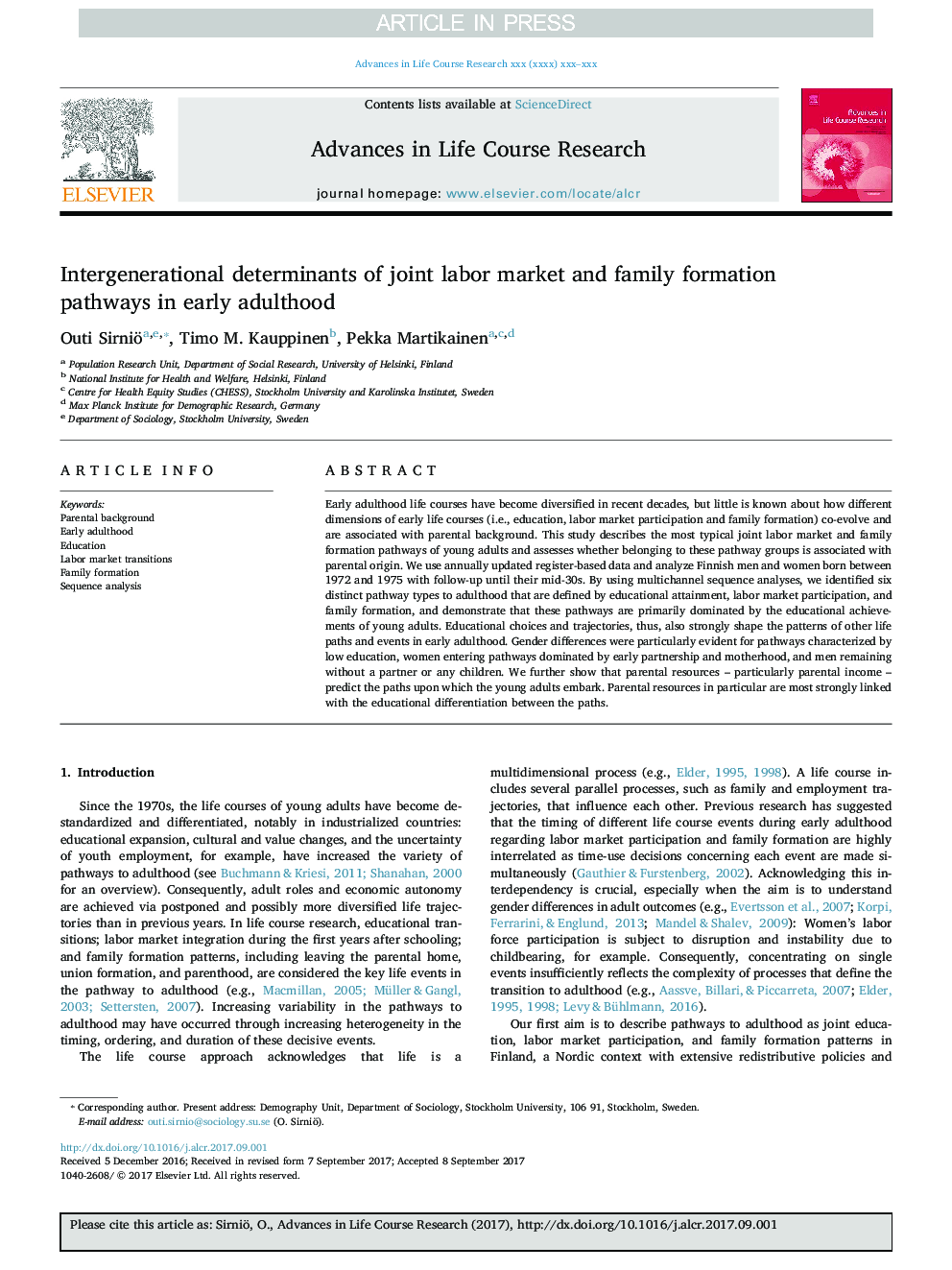| Article ID | Journal | Published Year | Pages | File Type |
|---|---|---|---|---|
| 6784785 | Advances in Life Course Research | 2017 | 12 Pages |
Abstract
Early adulthood life courses have become diversified in recent decades, but little is known about how different dimensions of early life courses (i.e., education, labor market participation and family formation) co-evolve and are associated with parental background. This study describes the most typical joint labor market and family formation pathways of young adults and assesses whether belonging to these pathway groups is associated with parental origin. We use annually updated register-based data and analyze Finnish men and women born between 1972 and 1975 with follow-up until their mid-30s. By using multichannel sequence analyses, we identified six distinct pathway types to adulthood that are defined by educational attainment, labor market participation, and family formation, and demonstrate that these pathways are primarily dominated by the educational achievements of young adults. Educational choices and trajectories, thus, also strongly shape the patterns of other life paths and events in early adulthood. Gender differences were particularly evident for pathways characterized by low education, women entering pathways dominated by early partnership and motherhood, and men remaining without a partner or any children. We further show that parental resources - particularly parental income - predict the paths upon which the young adults embark. Parental resources in particular are most strongly linked with the educational differentiation between the paths.
Keywords
Related Topics
Physical Sciences and Engineering
Mathematics
Statistics and Probability
Authors
Outi Sirniö, Timo M. Kauppinen, Pekka Martikainen,
